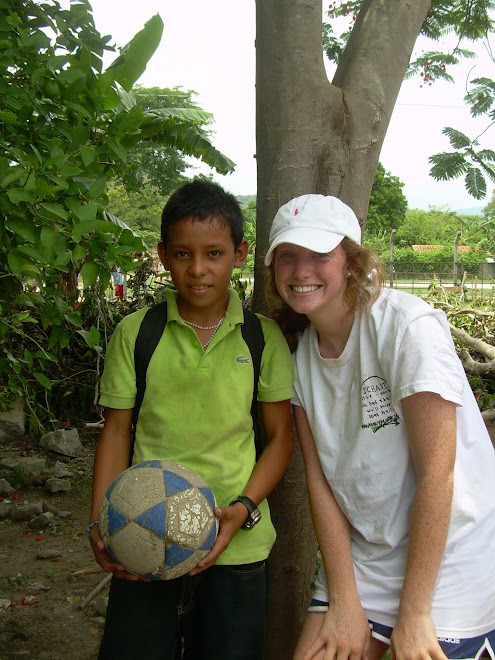After snack time, the group of kindergardeners came back to the class room and were very riled up and hyper. They were constantly provoking one another. Not only were the kids especially irritable and aggressive, but also the teacher was absent much of the time and I was left responsible to watch out for the group. All of the sudden two boys, only at the age of five, started to punch each other and yell, while the rest of the class gathered around them, cheering "fight! Fight! Fight!" Since the teacher was still missing, I had to step in and break up the argument.
I have never had to actually intervene and physically pull boys apart from one another during a fight and I don’t really think that as a 19-year-old girl volunteer, the teacher should have left such activities left to me, but it was an interesting experience. It made me feel uncomfortable that kids at only the age of five were already fighting and throwing punches at one another, while the other classmates chanted as if this were normal behavior. This was somewhat disturbing to me, because when children are developing habits like this at such a young age, their future of developing aggressive habits is inevitable.
Yet, we wonder why there is so much violence and crime. If behavior like this is rooted in children at such a young age and fist fights are a normal kindergarten occurrence, I think we need to be taking a little more time and energy on early childhood education, as that is where children learn their habits.

I think this is a great issue that is constantly being questioned by parents and psychologists. After babysitting for many families and having five siblings, I often notice that getting violent is easier for children than having direct conversations to work out their feelings. I believe that most of young adults violence comes from their inability to express emotions or handle their angry in current situations. I completely agree with your idea about stressing the importance of children’s educations!
ReplyDeleteI had a similar experience volunteering at a women's shelter back in high school, where I would do the same kind of work with the kids while they're mothers were given job training. The kids would sometimes get so violent with each other and I would have to break it up. I don't think the problem lies within education though, but more within the family dynamic. If the children's parents are physically or verbally violent to one another, the child is going to mirror that behavior. That kind of dynamic is more prevalent in underprivelidged families, so sadly, these children just have very poor role models in their homes and they bring that with them to school, daycare and the like.
ReplyDelete